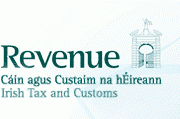U.S. Tax Reform and it’s impact on Ireland
President Trump signed into law H.R. 1, originally known as the “Tax Cuts and Jobs Act”, on 22 December 2017, resulting in the most significant U.S. tax reform in over 30 years.
The key business measures in the U.S. tax reform package are:
- The corporate income tax rate is reduced to 21% from 35% with effect from 1 January 2018.
- There is a move to a full dividend exemption regime for dividends from non-US companies, requiring a 10% holding.
- As part of the transition to a participation exemption regime, a one-time mandatory tax will be imposed on foreign earnings retained outside the US. This “deemed repatriation” tax applies in respect of any company in the world (including Ireland), if it is controlled by either a U.S. company or by U.S. citizens. This includes either:
(a) any company where the shares are owned (directly, indirectly or constructively) 50.01%+ by US shareholders, or
(b) where 10% of the shares are owned by a US corporate shareholder.
- The deemed repatriation tax rates for the transition to a territorial tax system are 15.5% for earnings held in cash or liquid assets and 8% for the remainder.
- There will be a minimum tax on profits arising to foreign subsidiaries of US multinationals from the exploitation of intangible assets, known as “global intangible low-taxed income” (GILTI).
- A “base erosion anti-abuse tax” (BEAT) will be adopted. The BEAT will generally impose a minimum tax on certain deductible payments made to a foreign affiliate, including payments such as royalties and management fees but excluding cost of goods sold.
- Interest deductions for tax years beginning after 31 December 2017 are restricted to 30% of EBITDA (earnings before interest, tax, depreciation and amortisation). For tax years beginning after 31 December 2021, the limitation will be 30% of a measure similar to EBIT (no add-back for depreciation and amortisation).
- Other provisions target cross-border transactions, including revised treatment of hybrids and a new special tax incentive for certain foreign-derived intangible income.
Any business with U.S. connections should consider what exposure to U.S. tax (if any) may exist in light of the above changes.
Should you require any further details on the above, please contact Edward Murphy, Head of Tax Services.









